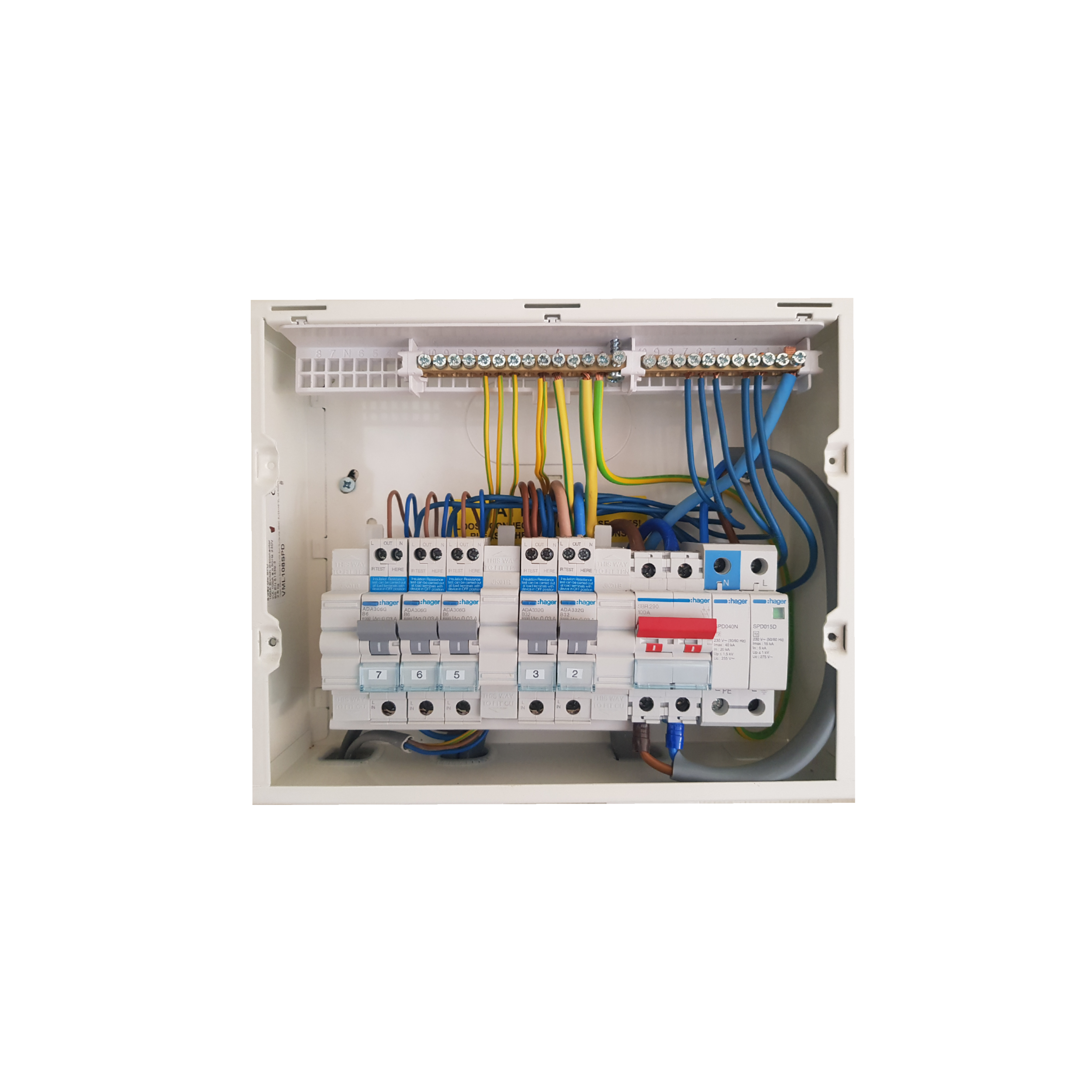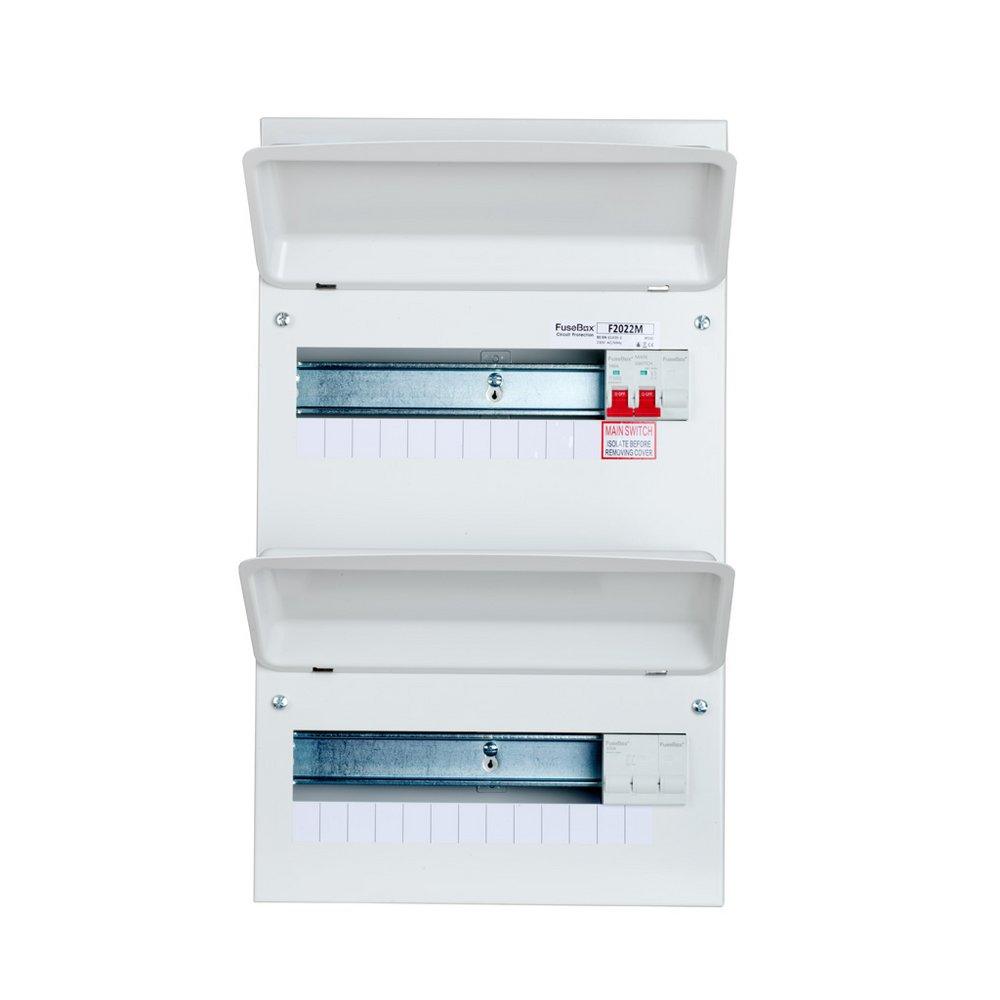The Importance of Installing Reliable RCBO CONSUMER UNITS in Your Property
The Importance of Installing Reliable RCBO CONSUMER UNITS in Your Property
Blog Article
The Duty of Consumer Units in Efficient Power Monitoring Solution
Consumer devices are indispensable to effective power management systems, offering as the main distribution points for electrical power within structures. The arrival of smart technologies has actually better enhanced their capability, enabling for real-time information monitoring and nuanced energy intake evaluation.
Recognizing Customer Units

Comprehending the role of consumer units starts with acknowledging their essential feature in protecting electric systems. By separating mistakes within certain circuits, consumer systems protect against widespread failures and potential fire risks. This seclusion is attained with the use of breaker that trip or integrates that blow when a mistake is spotted, consequently removing the electric flow to the influenced circuit.
Furthermore, customer units assist in the orderly distribution of power, enhancing the performance of power use. They permit the systematic management of electric lots, which can be particularly important in industrial and business setups where demand can vary dramatically. Correctly conserved consumer units add to the longevity of electrical systems and help in reducing downtime created by electrical failures, inevitably supporting the smooth procedure of energy-dependent centers.
Smart Technologies Assimilation

A vital advantage of clever consumer units is their capability to take advantage of advanced algorithms and artificial intelligence for anticipating analytics. This permits preemptive modifications based on usage patterns, weather report, and various other variables, substantially enhancing total effectiveness. Clever customer units assist in need action programs, where energy usage can be dynamically adjusted throughout top periods to maintain the grid and minimize expenses.
The integration of sustainable energy resources, such as solar and wind, is additionally structured through smart consumer units. By smartly taking care of the intermittency of these sources, these units make sure a well balanced and trustworthy power supply. Additionally, wise customer units enhance customer involvement by supplying comprehensive understandings and push-button control abilities with mobile applications, cultivating a more positive approach to energy preservation and sustainability.
Tracking Power Intake
Structure on the capacities of clever technologies assimilation, keeping an eye on energy usage ends up being a critical focus within power administration systems. By leveraging advanced metering infrastructure (AMI), real-time information on power usage can be gathered at granular degrees, giving important understandings into intake patterns internet and peak demand durations.
Smart meters and Net of Points (IoT) gadgets play a crucial function in this monitoring process. These gadgets can track power use in real-time, transferring data to centralized systems for evaluation.
The integration of these modern technologies not just equips consumers with detailed info regarding their energy use yet also sustains utility companies in managing tons circulation much more successfully. Ultimately, continual and accurate monitoring is essential for accomplishing energy efficiency, expense financial savings, and sustainability goals within energy management systems.
Optimizing Home Appliance Usage

One efficient approach involves determining top and off-peak hours to change energy-intensive tasks, such as laundry or dishwashing, to times when energy demand is lower. This not just lessens stress on the grid yet also takes advantage of reduced energy tolls. Additionally, incorporating machine knowing formulas enables anticipating upkeep, making certain home appliances operate at optimal efficiency and extending their life-span.
Energy monitoring systems can additionally incorporate user-specific preferences and habits to customize home appliance use routines. Wise illumination systems can adjust illumination based on tenancy and all-natural light availability, while see post Cooling and heating systems can keep comfort levels without extreme power usage.
Promoting Sustainability
Promoting sustainability within energy management systems includes not only boosting efficiency however also cultivating eco responsible practices. Consumer units are essential to this procedure, as they provide real-time information and control devices that allow individuals to keep an eye on and lower their power consumption. By leveraging advanced innovations, consumer units can identify energy-saving possibilities and facilitate the combination of sustainable power sources like solar and wind power.
One vital aspect of advertising sustainability is informing customers on the advantages of responsible energy usage. With detailed insights provided by customer devices, customers can make enlightened choices that reduce their carbon footprint. These devices can recommend ideal times for running high-energy appliances based on grid need and sustainable energy schedule, consequently decreasing dependence on fossil fuels.
Furthermore, consumer devices sustain the adoption of wise grid modern technologies, which boost the total effectiveness and reliability of power distribution. By enabling two-way interaction between consumers and energy carriers, these systems can dynamically readjust to energy demands, decreasing waste and promoting making use of lasting power practices.
Conclusion
Customer devices, as integral parts of energy administration systems, substantially enhance electric safety and security and effectiveness within structures with circuit security and clever modern technology combination. In addition, the consolidation of sustainable power sources promotes sustainable techniques, contributing to reduced general energy usage and reduced carbon impacts.
Advances in wise innovations have reinvented the capabilities of power management systems, especially with the assimilation of smart consumer units.Structure on the capacities of wise technologies assimilation, keeping an try these out eye on power intake ends up being a critical emphasis within energy administration systems.Efficient home appliance usage optimization is a crucial component of power management systems, aiming to enhance efficiency and reduce unnecessary power usage.Customer devices, as important components of power administration systems, considerably enhance electric safety and efficiency within structures via circuit security and smart modern technology integration. Additionally, the incorporation of eco-friendly energy sources advertises sustainable practices, contributing to minimized total energy consumption and lower carbon footprints.
Report this page